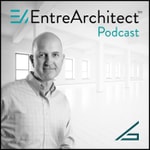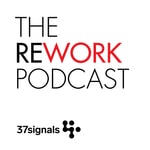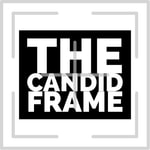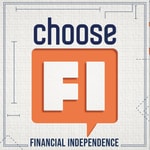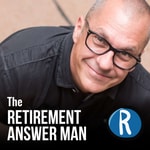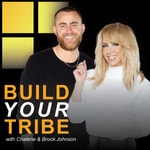Radical Personal Finance – Détails, épisodes et analyse
Détails du podcast
Informations techniques et générales issues du flux RSS du podcast.
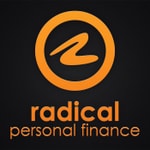
Radical Personal Finance
Joshua Sheats
Fréquence : 1 épisode/4j. Total Éps: 1147

Classements récents
Dernières positions dans les classements Apple Podcasts et Spotify.
Apple Podcasts
🇺🇸 États-Unis - investing
14/01/2025#86🇺🇸 États-Unis - investing
13/01/2025#85🇺🇸 États-Unis - investing
12/01/2025#78🇺🇸 États-Unis - investing
11/01/2025#74🇺🇸 États-Unis - investing
10/01/2025#80
Spotify
Aucun classement récent disponible
Liens partagés entre épisodes et podcasts
Liens présents dans les descriptions d'épisodes et autres podcasts les utilisant également.
See all- http://www.thesurvivalpodcast.com
457 partages
- https://www.thelandgeek.com/
254 partages
- https://nomadcapitalist.com/live/
211 partages
- https://patreon.com/radicalpersonalfinance
63 partages
- https://patreon.com/RadicalPersonalFinance
55 partages
Qualité et score du flux RSS
Évaluation technique de la qualité et de la structure du flux RSS.
See allScore global : 43%
Historique des publications
Répartition mensuelle des publications d'épisodes au fil des années.
1075-A Billion Dollar Exit Doesn't Lead to Automatic Happiness
Épisode 1075
lundi 6 janvier 2025 • Durée 22:40
1074-Why You Should Use Apple or Google Pay Instead of a Physical Credit Card
Épisode 1074
mardi 10 décembre 2024 • Durée 22:47
Learn this and many more useful tricks in the RPF Academy: www.RPFacademy.com.
1066: You—And the Country—Are Ten Years From a Total Transformation; Don't Give Up!
Épisode 1066
mercredi 6 novembre 2024 • Durée 33:50
979: Friday Q&A: Mental Models, Good Starter Estate Plan, AI, Barefoot Shoes, Prepare Food, Peter Zeihan, and more!
Épisode 979
vendredi 17 novembre 2023 • Durée 01:22:18
On today's Friday Q&A we discuss:
- 1:30 What mental models can I use to decide among jobs?
- 26:01 How should I set up my estate plan for my children?
- 43:03 Is AI a dangerous weapon?
- 44:52 Joshua's barefoot shoes
- 47:30 How can I do healthy prepper food?
- 56:30 Why is Peter Zeihan wrong?
- 1:11:14 What is happening with pot consumption in the USA?
- 1:17:00 How do you get free of back pain?
- Enjoy!
Joshua
- Join me on next week's Q&A: https://patreon.com/radicalpersonalfinance
- Join me in Panama for a week-long Investment Tour of Panama! https://expatmoney.com/radical
- Buy my course on Internationalization: http://www.internationalescapeplan.com
145-Brilliant Market Timing or Pure Serendipity? Interview With Nick O'Kelly, Co-Author of Live On The Margin
mardi 3 février 2015 • Durée 01:42:55
My guest today is Nick O'Kelly. Nick is the co-author of Live On The Margin, a book about taking a different approach to regaining control of your time. (We previously interviewed Pat Schulte, his co-author, in Episode 50: "From an $8/hr Job After College to Financial Independence at Age 30 to 10+ Years of Global Travel With Family! Interview With Pat Schulte From Bumfuzzle.com")
Nick is a meteorologist, a pilot, a captain, and an adventurer. He's also a writer, producer, and voiceover artist.
Enjoy this in-depth interview in which we discuss:
- Nick's seemingly brilliant timing
- The advantages and drawbacks of travel
- How to learn to trade stocks
- And more!
Enjoy!
Joshua
Links:
144-Friday Q&A: Can I Retire With $1.4M, What Do I Do With Too Much Cash, and Should I do a Roth 401(k) or Traditional 401(k)?
samedi 31 janvier 2015 • Durée 01:00:09
Today, I bring to you three very fun but straightforward questions. Here they are:
Question #1: @01:56
Dear Joshua,
My wife and I are well read in the areas of index fund investing, frugal living, early retirement, and financial independence (including your podcasts). We have been on the path to early retirement for many years and we think we are there. We both have high stress jobs and want to quit to raise a child and do whatever interests us whether it brings additional income or not. We want to have a significant financial cushion, but also don’t want to be so conservative that we work years longer than necessary. We are worriers and are very conservative in our estimates.
Although we are fairly confident in our calculations for early retirement timing, we hired a fee only financial planner for an outside opinion, and the experience was positive, but we believe the timing recommended was extremely conservative (4 years from now without a child; 5-6 years from now with a child). We have a very good handle on our spending as we have been tracking it closely for several years.
The financial planner did not seem to understand our frugal lifestyle and rather than reducing our current spending by the “cost of working” that we clearly communicated, he added $15,000 per year to our current spending, which significantly changes the projections for retirement. The explanation given was to account for “unexpected expenses”, but that amounts to >$20,000 per year in excess of our retirement spending estimate below. We would be very grateful for your opinion of our plan to retire NOW, given the following data, which we have abbreviated to the most important points.
Ages: Him-45, Her-37
Debts: None (own a house and 2 cars free and clear)
Assets ($1,300,646)
$714,200 – His/Her TSP (Federal 401k)
$347,554 – Taxable Account (Vanguard Index Funds)
$216,165 – Cash/I-Bonds
$22,727 – His/Her Roth IRA
$31,000 – His Pension (starting at age 60)
$6,000 – Her Pension (starting at age 62)
(Minimum of $100,000 net after moving and downsizing our house – not included in assets total above)
Asset Allocation:
40% Total US Stock Market (Vanguard/TSP Index Funds)
12% Total International Stock Market (Vanguard/TSP Index Funds)
33% Bonds (TSP G Fund)
15% Cash (CDs)
Spending:
Current Spending: $45,000
Retirement spending estimate $37,000
*This is after removing the easily calculated “costs of working” ($10,000 in property tax!; $3,000 in gas!) and adding estimated cost of health insurance ($5000?)
Note: We will be moving from a very high cost area (suburban Chicago) to a very low cost area (rural Florida)
Question #2 @26:20
Joshua,
Came across your podcast and dig the advice/honesty.
I've read numerous articles encouraging the use of fee-based financial advisors but haven't had a lot of luck finding the right person.. discouragement set in after numerous canned responses/what seemed like aggressive sales tactics.
I made somewhat of a half ass attempt in my early 20s with regularly maxing out a roth/always contributing enough to various company 401k to get the contribution match.
I've not paid a lot of attention and recently realized I'm holding roughly 50% of my total assets in a standard savings account yielding only 1%.
Without pulling the actual figures that'd be ~90k in retirement accounts Roth/Traditional rollover and ~90k in straight up cash... terrible I know.
My question is how do i fix/prevent it? I currently have one investment property with a mortgage that's less than what it's leasing for.
I see a couple fix it options:
Buy another house
Pay down existing mortgage
Invest outside of a retirement account
I believe adjusting my 401k contribution may be a start to preventing it but what about after I max it out?
I don't mind paying for advice but what I really want is someone that's hands on/up to date.. helping me get the most out of my money.
Question #3: @46:37
Joshua
My name is Joe and I’m 24 years old. I’ve been listening to your show for a while now and really enjoy it, keep up the good work.
My question has to do with whether or not a Roth 401k is the right move for me. Currently my gross income is $58,616. This year, I’ve contributed 6% of my AGI into a regular 401k and my employer matches .80 cents on the dollar up to the first 5% of my pay. ($3,517+$2,344 = $5,861) I also contribute to my Roth IRA and will max it out at $5,500.
My employer just recently began offering a Roth 401k option and my question is whether or not it is the best move for me to make to begin contributing to the Roth vs the regular 401k? I understand the tax benefits on the front end at my young age and do believe taxes will rise in the future and also that I will hopefully be in a higher tax bracket in retirement than I am now. In my mind, the advantage of the Roth is the higher contribution limit (18k vs 5,500) but the advantage of the Roth IRA is I have it at Schwab and have lower fees and more investment options than inside my 401k. I would like to keep my net take home pay the same and am having trouble running the math to figure out which would be the better option. In addition, I have the option to do a Roth 401k conversion on the $12k that’s in my Regular 401k. Your advice would be much appreciated.
About me:
Assets: $27k in Roth IRA, $12K in 401k, $3k in taxable investment acct, $6K in savings acct, $2k in checking acct
Debts: $41,200 Federal Parent PLUS @ 7.65% and $16,500 @ 5.25%. I currently am on the standard repayment plan (10 yrs) and make an extra $100 payment each month on top of that. No credit card debt or any other type of loan, own a 2005 Camry that is paid off.
***
Enjoy the show!
Joshua
143-Intro to Self-Directed IRAs: How to Invest In Real Estate, Tax Liens, Physical Gold and Silver, Structured Settlements, Horses, Livestock, Farmland, Timberland, and More In Your IRA
vendredi 30 janvier 2015 • Durée 01:55:10
I've been looking for an expert on self-directed IRAs to bring on the show and I was thrilled to meet Kirk Chisholm at FinCon last year.
Kirk is an expert in both the self-directed IRA niche and the alternative investments world. His firm, Innovative Advisory Group, helps serve clients in this space with advice.
Self-directed IRAs can be a powerful tool in your arsenal. Just think of the magic of Mitt Romney's $100,000,000 IRA!
When you combine an IRA with alternative investments, you might really be able to work some magic.
What is an Alternative Investment?
Well, right from Kirk's site: "The term “alternative investment” has become a trendy term in the financial services industry to describe new approaches to investing. It is frequently used to describe different asset classes or investment types such as: hedge funds, structured products, managed futures, or even Timber REITs. If you describe traditional assets as stocks, bonds and mutual funds, then by contrast everything else is an alternative investment.
"We look at the term “alternative investments” differently. We take a step beyond the current industry definition and use it to describe assets or investments such as physical real estate, tax liens, physical gold and silver, structured settlements, horses, livestock, farmland, timberland, and more. We would characterize alternative investments as an asset or investment which is: not publicly traded, has a low-correlate to most traditional investments, is too small for institutional investors, is illiquid, is not easily able to be securitized, or is not reliant on the publicly traded markets to be profitable.
"The characterization of what is a suitable asset for diversification purposes is a fluid concept. Some asset classes, which have traditionally provided a low or negative correlation to other assets, have become much more highly correlated since early 2000. Asset classes such as managed futures, timberland, farmland, and certain types of hedge funds in the past did provide a low correlation to the traditional markets, however, due to a higher level of institutional interest in these areas, as well as changing market conditions, they have become more highly correlated to traditional markets. This minimizes the effects of diversification as a risk management tool."
This interview is super fun and super deep.
Enjoy!
Joshua
Links:
- Kirk's firm: Innovative Wealth
- GAO report on multi-million dollar IRAs
142-One Possible Business Model For an Ethical Financial Planning Practice Serving Middle-Income Families
jeudi 29 janvier 2015 • Durée 01:25:29
I designed a potential financial planning practice structure a year or so ago. It has been my backup plan if Radical Personal Finance were unable to be financially productive. (It's probably still a backup of a backup.)
In light of the Episode 139: "My Advice for People Interested In Getting Into Financial Planning," I decided to follow up with some specific ideas for a practice I considered creating.
Here are my ideas.
The show includes a discussion of:
- The problem of providing planning for middle-income households
- The idea of a planning model for a monthly fee
- How to align advisor and client incentives
- The benefits of a virtual financial planning meeting
- The importance of having a clear marketing plan for your practice
- Ideas for building trust
- The importance of demonstrating expertise
- The importance of a niche market focus
- Limitations on income with this model
Enjoy the show!
Links:
141-Establishing a Success Mindset In Preparation for Urban Farming: Interview with Curtis Stone
mardi 27 janvier 2015 • Durée 01:32:27
The most popular episode--by a long shot--of the Radical Personal Finance podcast is Episode 40: "Making $80k on 1/3 Acre With an Urban Farm Without Owning Land? Yes, Please! Interview With Curtis Stone."
Today, Curtis is back for another appearance.
We set out to record a show with a basic overview of how to get into urban farming with some practical steps lined out.
The first step is to get your mindset right. Although our interview got stuck on step one, it wound up being a fascinating discussion of business principles.
We discuss:
- Setting intelligent goals for urban farming
- Focusing on a triple bottom line: 1) economic 2) social 3) environmental
- The value of education and especially specific, focused education
I hope you enjoy!
Joshua
NOTE: Curtis is on the road over the coming weeks with seminars in Florida, California, Washington, British Columbia and Mexico. Details are here: http://www.greencityacres.com/events/
Links:
- Curtis's farm: Green City Acres
- Curtis's new (future) course: Profitable Urban Farming
- SoilMate.com: Local Farmers, Local Food
- Out Of Our Own Backyards: Ooooby app
- Genetic Roulette: The Gamble of Our Lives
140-Friday Q&A: Planning Steps When A Spouse Is Planning to Stay Home, Borrowing On A Paid-For House For Real Estate Investment, Pension Plans in an Asset Allocation Plan, and How To Plan Your Life Together After Divorce
mardi 27 janvier 2015 • Durée 01:39:57
On Fridays, I answer your questions! And, even though this is going out on Monday, I still answer your questions! :)
Today, I handle these four questions:
- What practical steps can a couple take when planning for one spouse to stay at home?
- Is it wise to borrow money on a paid-off house to fund a real estate investment?
- How should I factor a defined-benefit pension plan into my asset allocation plan?
- How should I set my personal financial goals and pull my life back together after a divorce?
Enjoy!
Joshua
